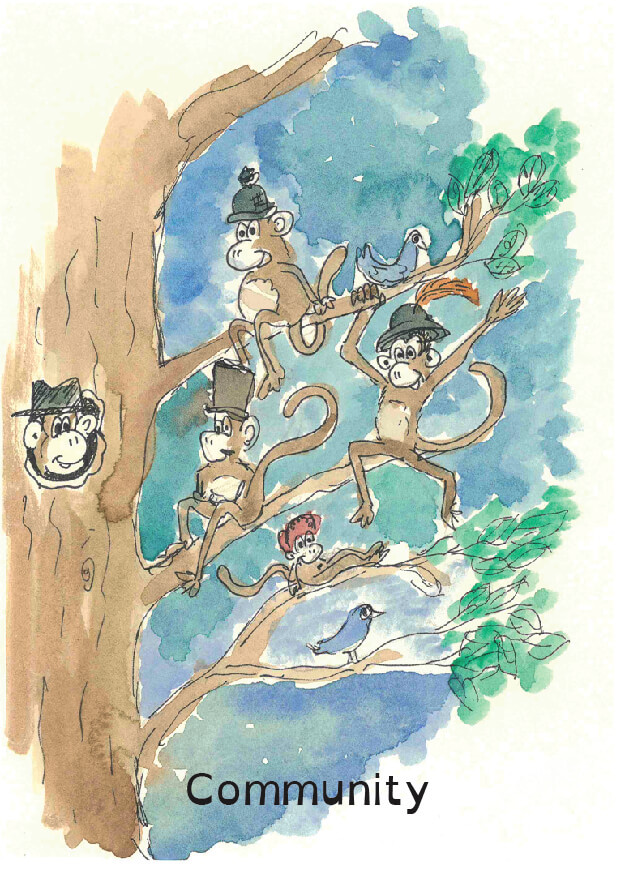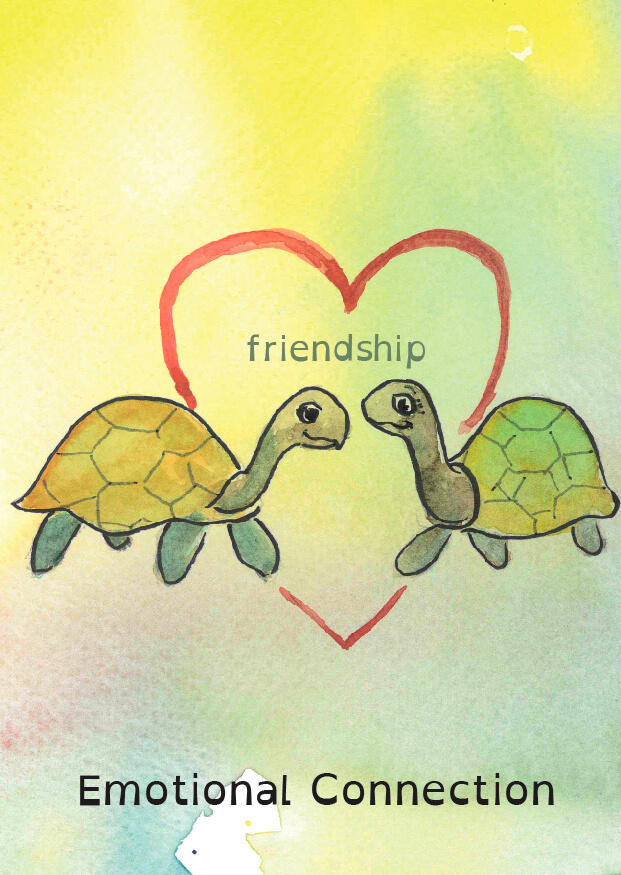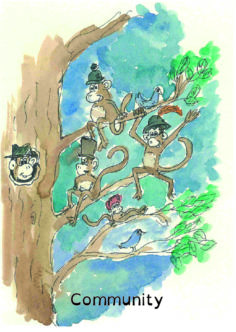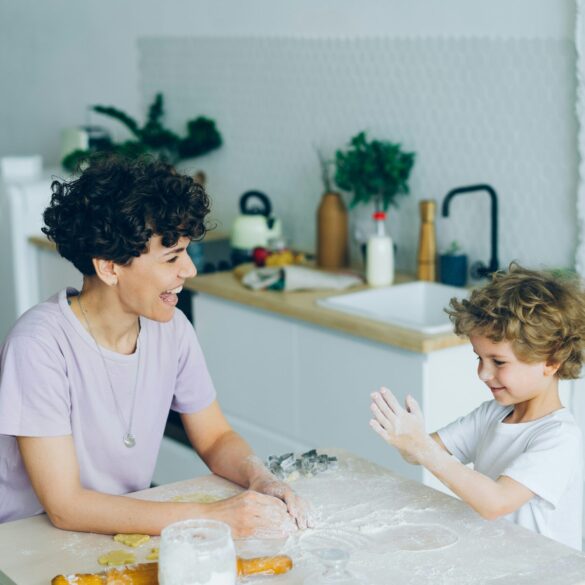Feeling connected – meeting your need for interaction
If you or your young people are feeling lonely, not feeling part of anything, needing lots of attention or doing things for a reaction, why don’t you try meeting your need for interaction by following these steps?
Community

Spending time with others, particularly those we share something in common with, can help us to feel safe and secure and can make us feel like we belong. This is good for our wellbeing and helps us to feel safe and secure.
Three things you can do now to help with wellbeing:
- Become part of a group by thinking about things you enjoy doing, and finding people who also enjoy the same things. This could be choosing friends to be with, joining an organised group or chatting about things you have in common.
- Maybe start a group of your own. This could be just finding people who like similar things to you, or organising to meet with people you get on well with.
- Join in with local community events to feel part of a group with your family, such as litter picking or running.
Emotional Connection

Sharing an emotional connection with someone else is important for our mental health and wellbeing. We need someone in our lives that we can talk to and feel we are accepted for who we are.
Three things to do now to help bring you back to wellbeing:
- Notice who makes you feel good. Spend more time with people who make you feel good about yourself.
- Spend time with a pet, talking to them, training them or taking care of them.
- Spend quality time with someone who cares about you, doing something together. This could be something fun like a game, a walk, or doing a job together like the washing up!
Attention

We all need to give and receive the right amount of attention to keep us feeling positive and content. You might be told you are attention-seeking with your behaviour, but this is often because you are ‘attention-needing’. Attention is so important to humans that we might seek or accept negative attention when positive attention isn’t available, so it is important that we find it and share it in healthy ways.
Three things to do now to help bring you back into wellbeing:
- Exchange healthy attention with someone else- spend time together away from screens.
- Speak to a grown up about having more one-to-one time with them to chat and so something fun together.
- Find a way to give someone else attention- doing something with them or sending them a message or letter.
To find out more about how Suffolk Mind can help you and your young person, visit our EARLY Minds page.











